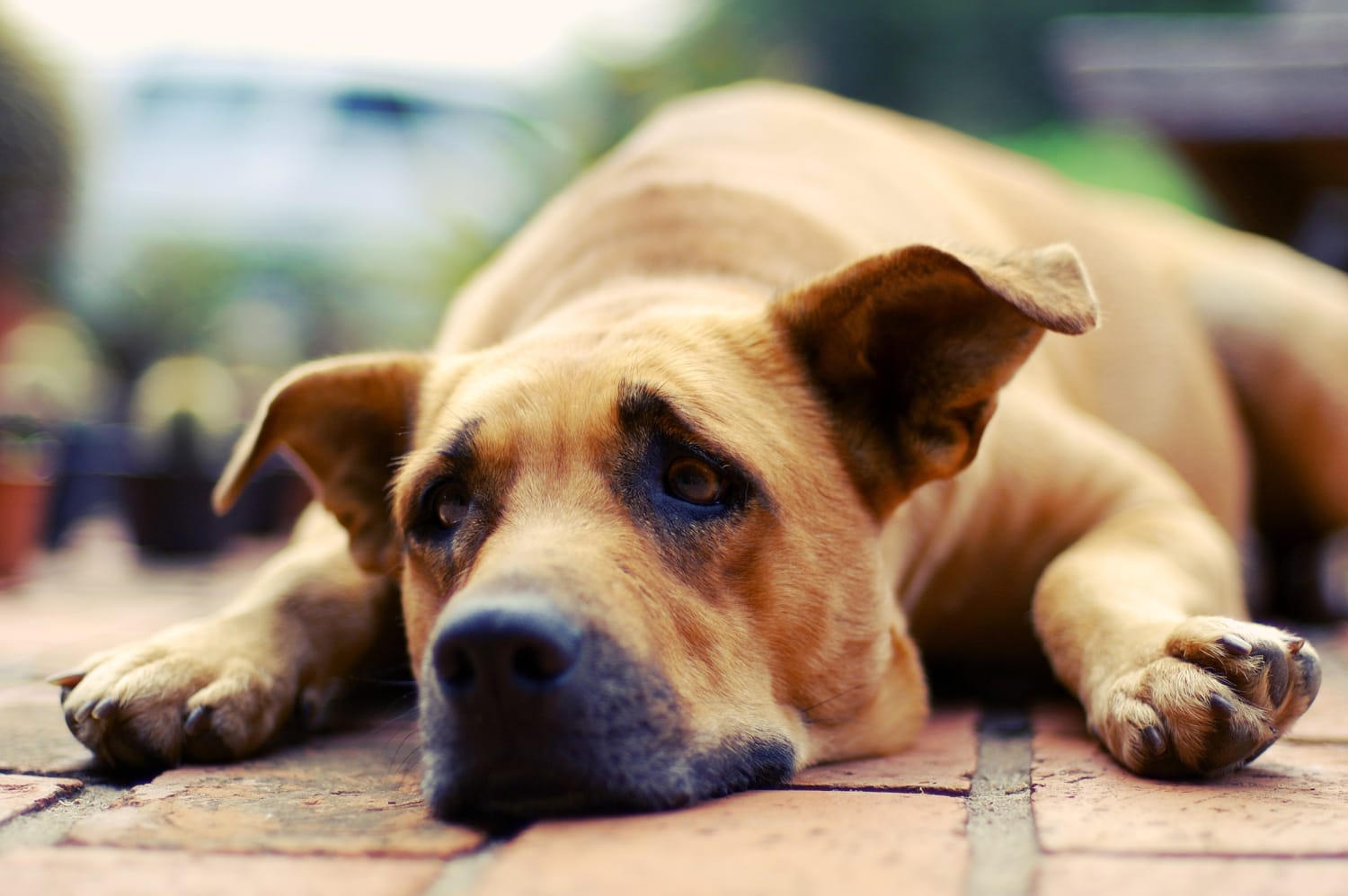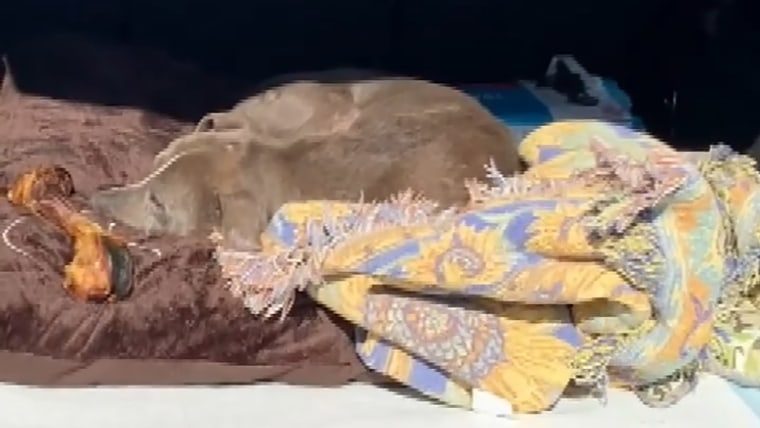Dogs may need a little help from their human friends to get over the death of another dog, according to a new study.
A survey of dog owners in Italy reported that 86 percent of them saw negative changes in the behavior of a surviving dog after the death of a companion dog in the same household — among other things, the surviving dog typically sought more attention, ate less and played less for several months after the event.
But their owners can ease the grieving process by maintaining any routines dogs are used to and staying close to their surviving pets, said Dr. Federica Pirrone, a veterinary physiologist at the University of Milan and the lead author of the study published Thursday in the journal Scientific Reports.
Dogs’ loyalties toward their dead owners is reflected in the true stories of Greatfriars Bobby — a Skye terrier in Scotland in the 19th century who guarded the grave of his owner for 14 years — and of Hachikō in Japan, an Akita dog who in the early 20th century waited each day for nine years outside the train station where his deceased owner had regularly returned from work. Both dogs are now famous and have statues built in their honor.
But it seems that dogs can also form attachments to other dogs and grieve for them in the same way.
“Domestic dogs are a social species who have adapted to live in multispecies societies,” Pirrone said in an email. “There is plenty of literature showing that they develop both dog-dog and dog-owner attachments, thus we expect the mechanisms to be similar.”
In a survey of the dog owners, she and her colleagues found dogs that formed a close attachment with another dog were more likely to suffer grief after their death, regardless of their breed, age or sex.
The fact that their owner was obviously grieving for the dead dog also had a negative effect, Pirrone said.
But dog grieving does not seem to be related to the outdated interpretation that dogs are descended from pack animals. Instead, “domestic dogs are best described as social animals who may develop strong affiliations with members of their group,” she said. “I believe that the grieving behavior of dogs is more likely related to their ability to form an emotional bond.”
As well as their dogs seeking more attention, eating less and playing less, the survey respondents also reported that grieving dogs became less active in general, more fearful, slept more and were more prone to whining or barking.
But “there are many things an owner can do to alleviate their companion dog’s distress in this situation,” Pirrone said, such as maintaining the daily routines the dog is used to, which is known to reassure dogs considerably. “Moreover, it is advisable that owners stay close to their dog, share activities with them and make them feel protected.”
Dr. Nicholas Dodman, professor emeritus of animal behavior at Tufts University in Massachusetts and the head of the Center for Canine Behavior Studies, said the study reaffirmed what scientists had known about dogs suffering grief.
“This is a real phenomenon. I’ve seen it for years,” he said. “The researchers have done good work by bringing it to light. This is something people should know.”
Dodman, who didn’t take part in the study, said dogs are known to suffer what’s called “separation anxiety” when they are apart from their owners or left alone, and the grieving behaviors for other dogs are an extreme form of the same thing.
Some dogs were so badly affected by grief after the death of a companion dog that they needed active intervention to get over it, such as their owners bringing a new puppy or a compatible rescue dog into the household, he said.
Animal behaviorist John Bradshaw, formerly the director of the Anthrozoology Institute at the University of Bristol in the United Kingdom and the author of “Dog Sense,” said dogs experience grief differently than humans.
Dogs cannot recall many memories spontaneously, but only when prompted to do so by external events — and so the smell of a departed dog in a house, which can linger for weeks, can trigger those memories, he said. Bradshaw was also not involved in the latest study.
Long-term changes in behavior from a dog grieving for another dog most likely stemmed from changes in the behavior of family members toward the surviving dog, he said. Most dogs regard their relationships with humans as more important than their relationships with other dogs, and adapt to those who care for them.
“While unusual for an animal, this is unsurprising, since historically a dog’s very survival depended on the benevolence of people, not their own kind,” he said.
Source: | This article originally belongs to Nbcnews.com











